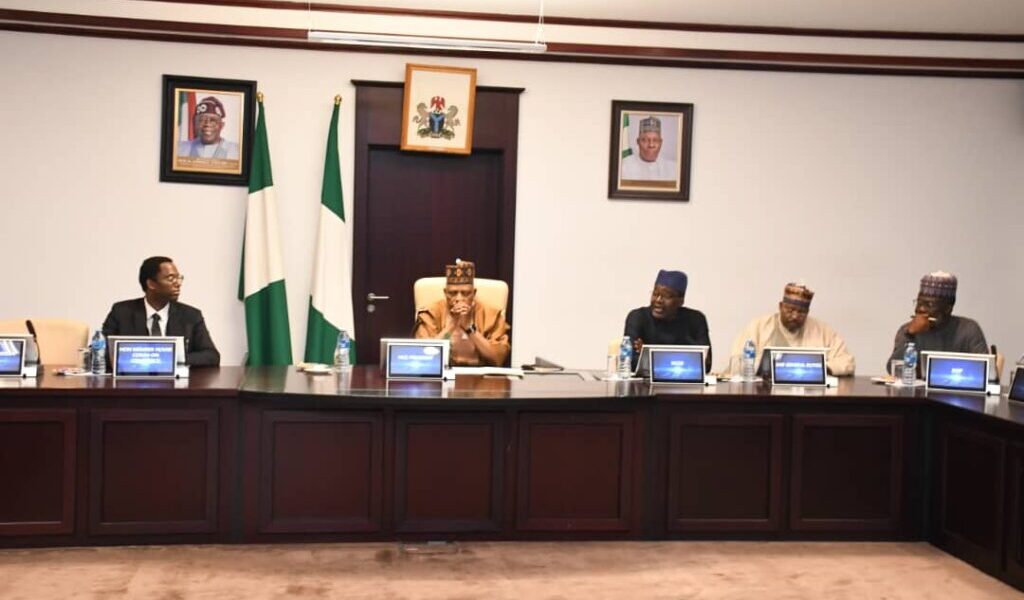FG Targets 2026 for Full Implementation of Single-Window Policy to Boost Nigerian Ports Efficiency
FG Sets 2026 Deadline to Implement National Single Window System at Nigerian Ports
The Federal Government of Nigeria has intensified efforts to deploy the National Single Window (NSW) system at all major ports by 2026, in a bid to transform trade facilitation, increase efficiency, and reduce operational costs across the maritime sector. Eyes Of Lagos reports,
Vice President Kashim Shettima, addressing the second meeting of the Ports and Customs Efficiency Committee at the Presidential Villa in Abuja, described the NSW initiative as a “game changer” for the country’s port operations. He explained that the system would harmonize documentation, reduce unnecessary human contact, and increase transparency in cargo clearance processes.
Efficiency Goals and Targets
Shettima revealed that the policy’s primary goal is to cut cargo clearance time to under seven days by the end of 2026, aiming to position Nigeria’s ports among the top three most efficient trade gateways in Africa.
He warned that current inefficiencies make the cost of clearing goods in Nigeria roughly 30 percent higher than in neighboring countries, discouraging investment, raising consumer prices, and reducing export competitiveness.
“Our ports record cargo dwell times 475 percent above the global average benchmark. We cannot afford to continue down this path,” Shettima stressed.
Collaboration Across Agencies
The Vice President directed agencies including the Nigerian Ports Authority (NPA), Nigerian Customs Service (NCS), NAFDAC, and SON to work together in creating a weights and measures framework that ensures fair trade practices and protects consumers from fraudulent activities.
He also expressed optimism regarding the pending Executive Order on Joint Physical Inspection, awaiting approval from President Tinubu. Shettima said the order will eliminate bottlenecks, foster inter-agency collaboration, and enhance predictability and transparency in port operations.
“It marks the dawn of a new era where agencies work together and systems speak a common language,” he said.
Shettima emphasized that inter-agency rivalry must give way to collaboration, adding,
“No reform succeeds without ownership. Our efficiency depends on how well we work together.”
Calls for Accountability and Stakeholder Cooperation
Zahrah Audu, Director-General of the Presidential Enabling Business Environment Council (PEBEC), highlighted how inefficient port procedures negatively impact Nigeria’s Ease of Doing Business ranking, urging stronger accountability and cooperation among stakeholders to make Nigerian ports globally competitive.
Similarly, Abubakar Dantsoho, Managing Director of the Nigerian Ports Authority, stated that synergy and partnership among agencies are essential for operational efficiency. He noted that progress is already visible through joint inspection and coordinated boarding operations.
Dantsoho stressed the importance of technology adoption, infrastructure upgrades, and human capacity development as key drivers to enhance port competitiveness and maintain Nigeria’s relevance in regional and global trade.
Conclusion
The Federal Government’s plan to fully implement the National Single Window by 2026 marks a critical step toward modernizing Nigeria’s maritime trade sector. By reducing cargo dwell time, cutting costs, and ensuring transparency, the initiative has the potential to position Nigeria as a leading trade hub in Africa. However, its success will rely heavily on inter-agency collaboration, accountability, and effective adoption of technology across all ports.









